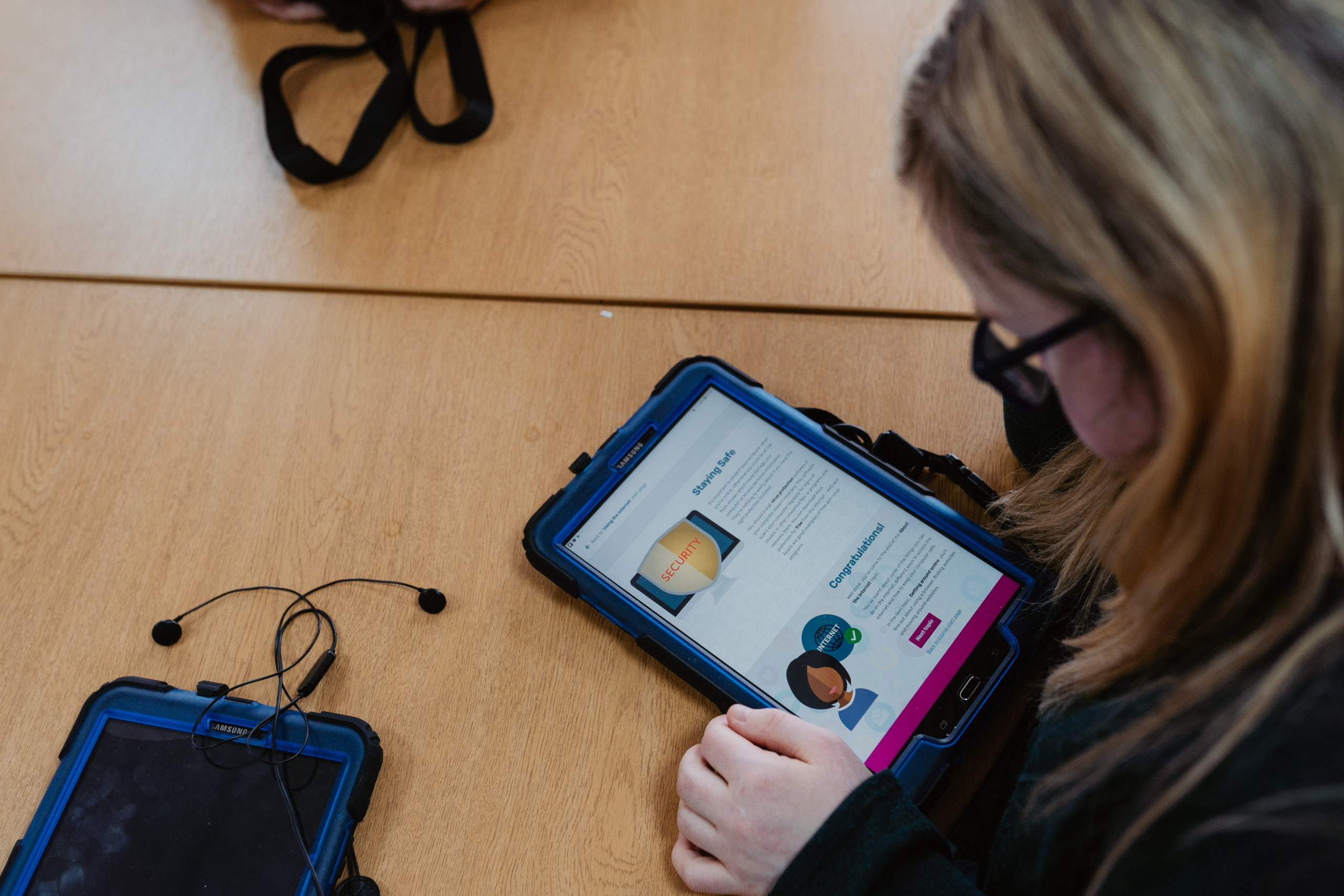Designing for Future Digital Inclusion
As the landscape for accessing support to learn essential digital skills changes, we need to adapt our model too.
This June, Head of Digital Social Inclusion Fran shared how we’re working with DfE for a sixth year and with the Online Centres Network to deliver the Future Digital Inclusion project.
In April our CEO Helen also shared our response to the new Essential Digital Skills entitlement announced by the government that comes into effect in 2020.
As the landscape for accessing support to learn essential digital skills changes, we need to adapt our model too.
We’re now 4 months into a Test and Learn project we’re running alongside the 2019/20 Future Digital Inclusion project. It’s designed to test new approaches to the different parts of our existing model to discover what needs to change for it to stay relevant and accessible to people who need it and create a Future Community-based Essential Digital Skills Programme for England.
This is a quick look at how we’ve designed the Test and Learn project and what we’re starting to uncover and learn about our model and our approach to testing and learning with the Online Centres Network.
Breaking down the model
To create the right learning conditions, we first need to understand what we’re aiming to learn.
To understand the existing model, what’s working well and where the challenges lie, we’ve broken it down into 4 main components; Funding and Application, Delivery, Reporting and Progression. We want to find out if we need to make changes to all, some or just one of them to make the difference.
We’ve identified the questions we’re trying to answer throughout the project.
- Funding and Application – how much does it really cost to deliver Essential Digital Skills through community organisations?
- Delivery – what different styles of support do learners need to learn Essential Digital Skills?
- Reporting – how can we capture both digital and non-digital outcomes for learners?
- Progression – what are the conditions that most effectively support learners to progress to further learning?

Handing over to the experts
With our questions in place, we invited Online Centres from across England to apply to take part in the Test and Learn project, asking them to join us in experimenting with new approaches and sharing their experiences of what works and importantly, what doesn’t.
We’re now working with 25 Online Centres, some who have delivered the Future Digital Inclusion project before, some who haven’t.
Each month, we’re talking to each Centre to find out what they’ve been doing differently, what’s working well, what isn’t and how they’re adapting their model along the way.
What we’re discovering
After just 4 months, we’re already starting to see some common themes across the project that will be invaluable to helping us design a Future Community-based Essential Digital Skills Programme.
The overwhelming theme is flexibility. Flexibility for Centres to bid for the right amount of funding for them, flexibility for them to top-up their funding to support more progression for learners and flexibility to tailor each learners journey, starting with the essential skills that are most relevant to them and the outcomes they desire.
Getting more specific
So far, our approach has been to take a step back, giving Centres space to experiment. Over the next few months, we need to get a bit more specific. Focusing in and asking more specific questions that will allow us to design a programme that is flexible without being so bespoke that it can’t be scaled.
We’ll be working closely with the Online Centres Network to ensure we’re accurately representing them and their learners needs and creating the right conditions for them to continue to provide this essential support.
What we’re learning about our Test and Learn approach
One of our guiding principles at Good Things is that we design with, not for people. The Test and Learn approach we’re taking is grounded in that principle. We’re not the experts, but we can help the experts in the Online Centres Network to influence the future.
It sounds simple in theory, but comes with its own challenges in practice.
We’re still the funder
The relationship between funder and grantee is a traditionally paternal relationship. Trying to turn it on it’s head is possible, but it takes time and trust. Time for Online Centres to get used to being asked for more than their progress towards a target and trust that we’ll treat their feedback with the respect and care it deserves.
People need permission
Asking people to do things differently doesn’t mean they will or can. Saying that they can use some of their funding to buy much needed equipment is one thing, taking the extra step to allocate a specific amount of funding for buying equipment gives explicit permission to do so.
One size doesn’t fit all
What makes the Online Centres so effective is it’s diversity. From libraries to coffee shops, scheduled classes to drop-in outreach sessions, each and everyone of them is unique. So we need to make sure our approach allows for this uniqueness. Providing a framework and guidance over a checklist and rules is helping us to push ourselves and the Online Centres to try new things and discover things that traditional funded projects wouldn’t.
